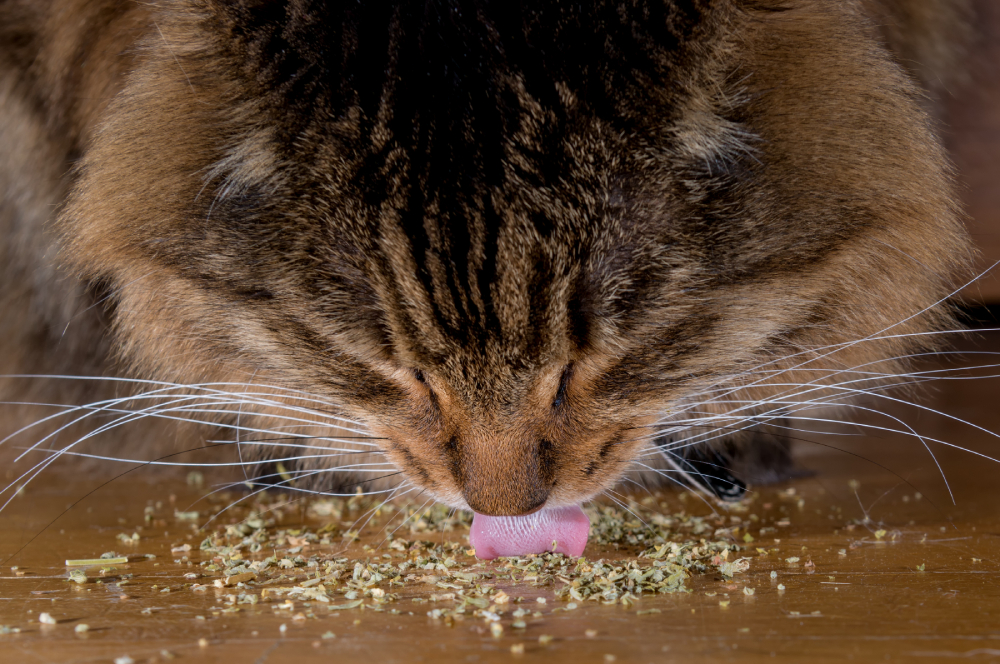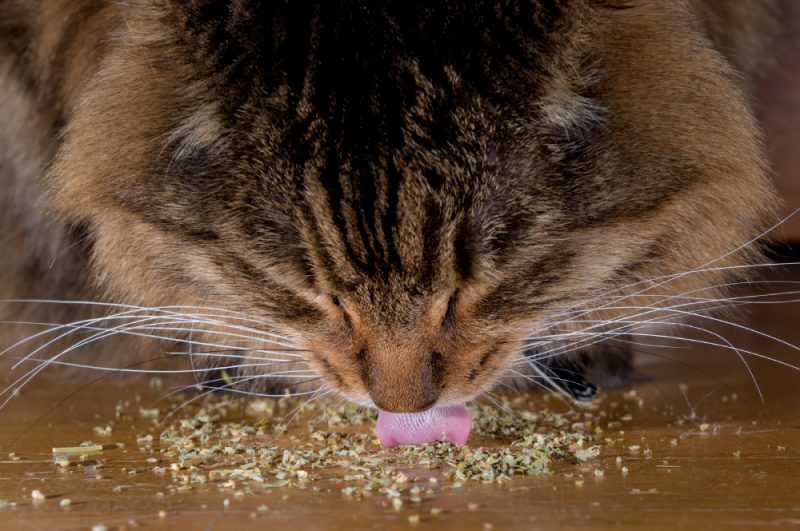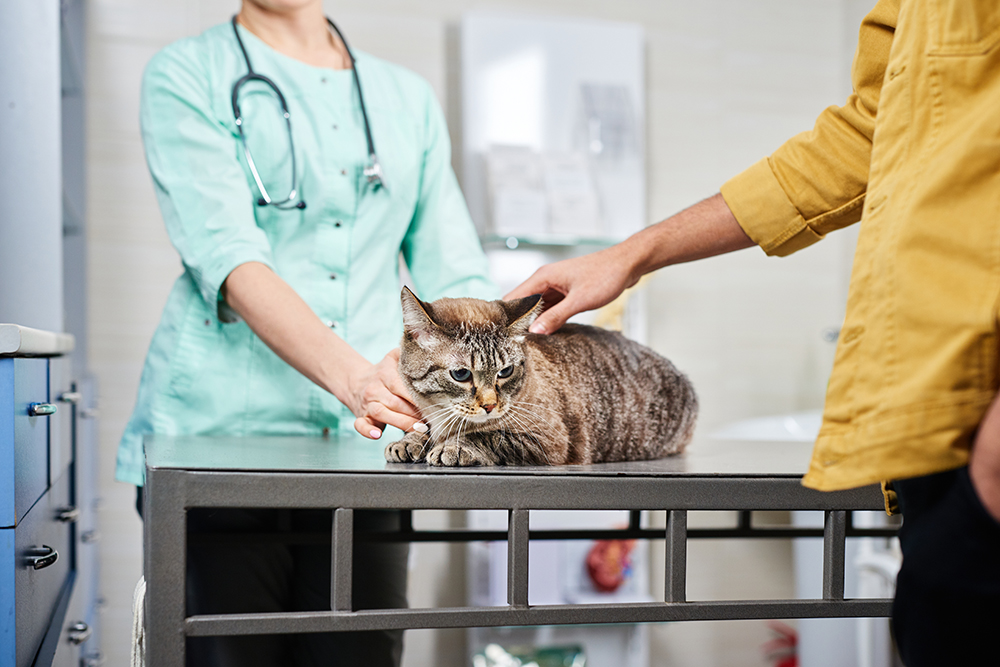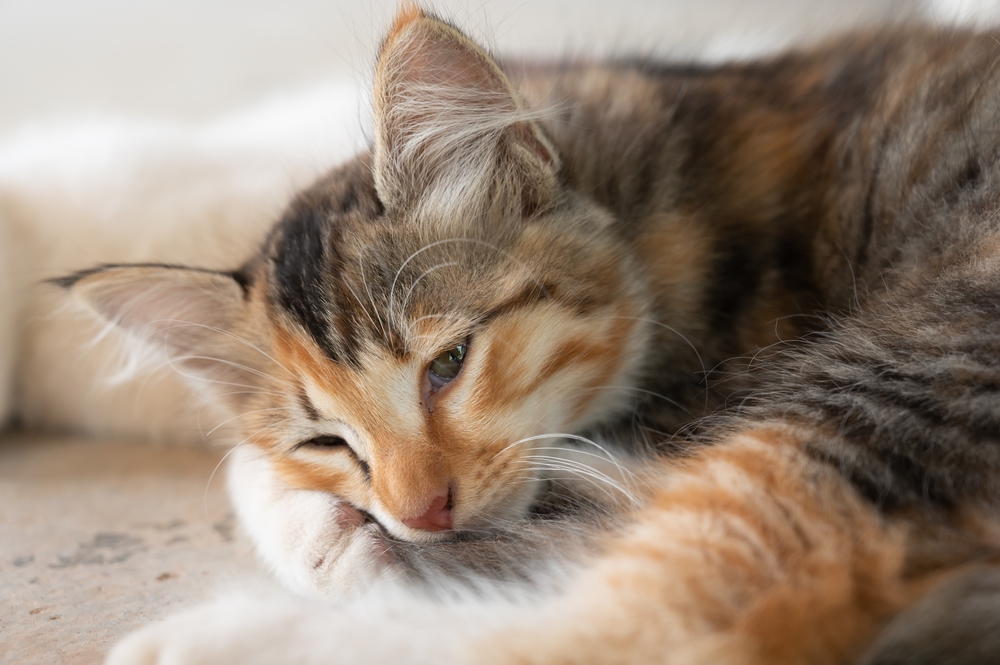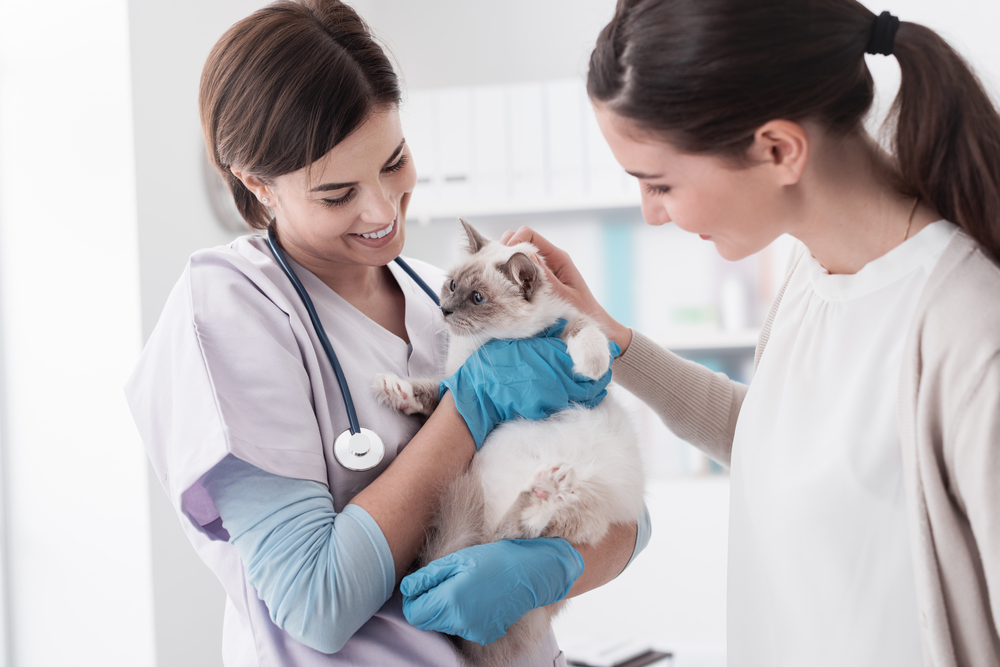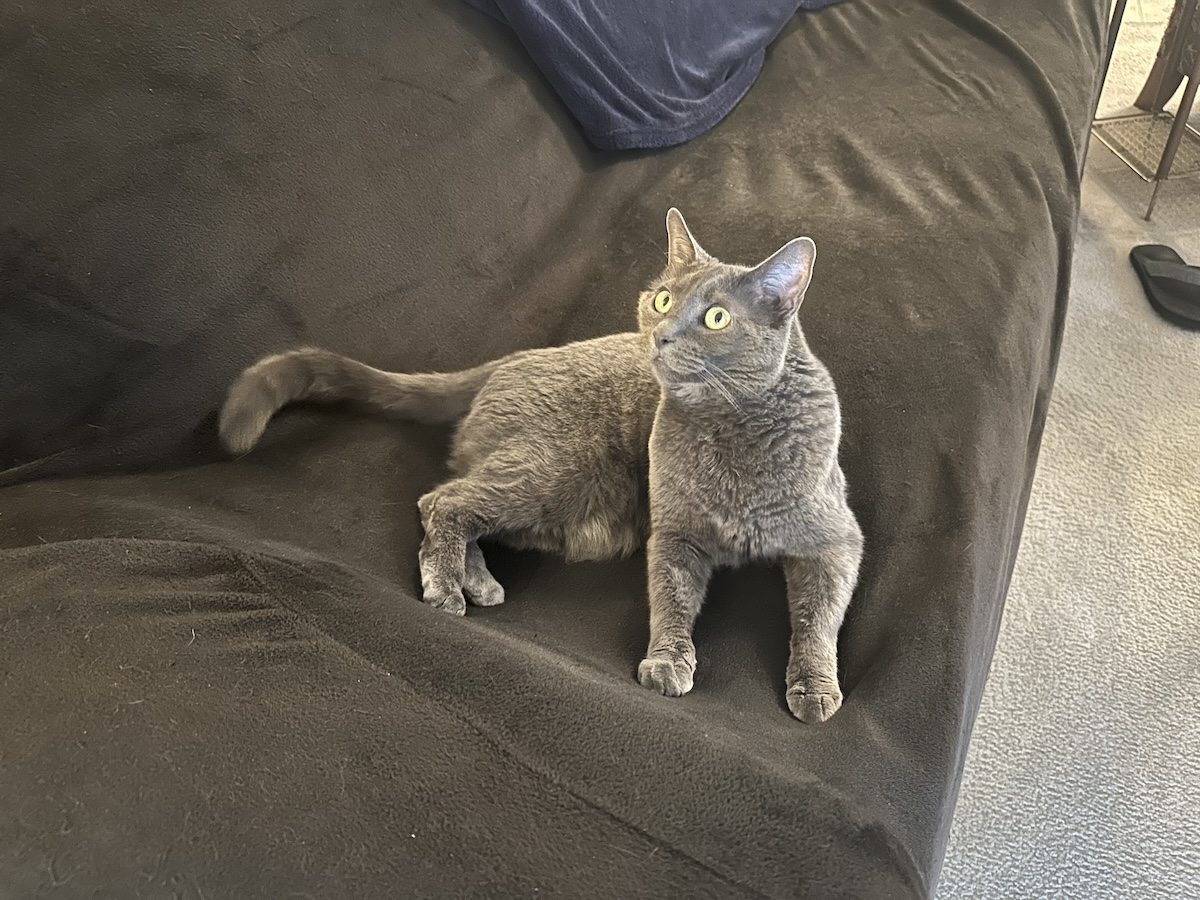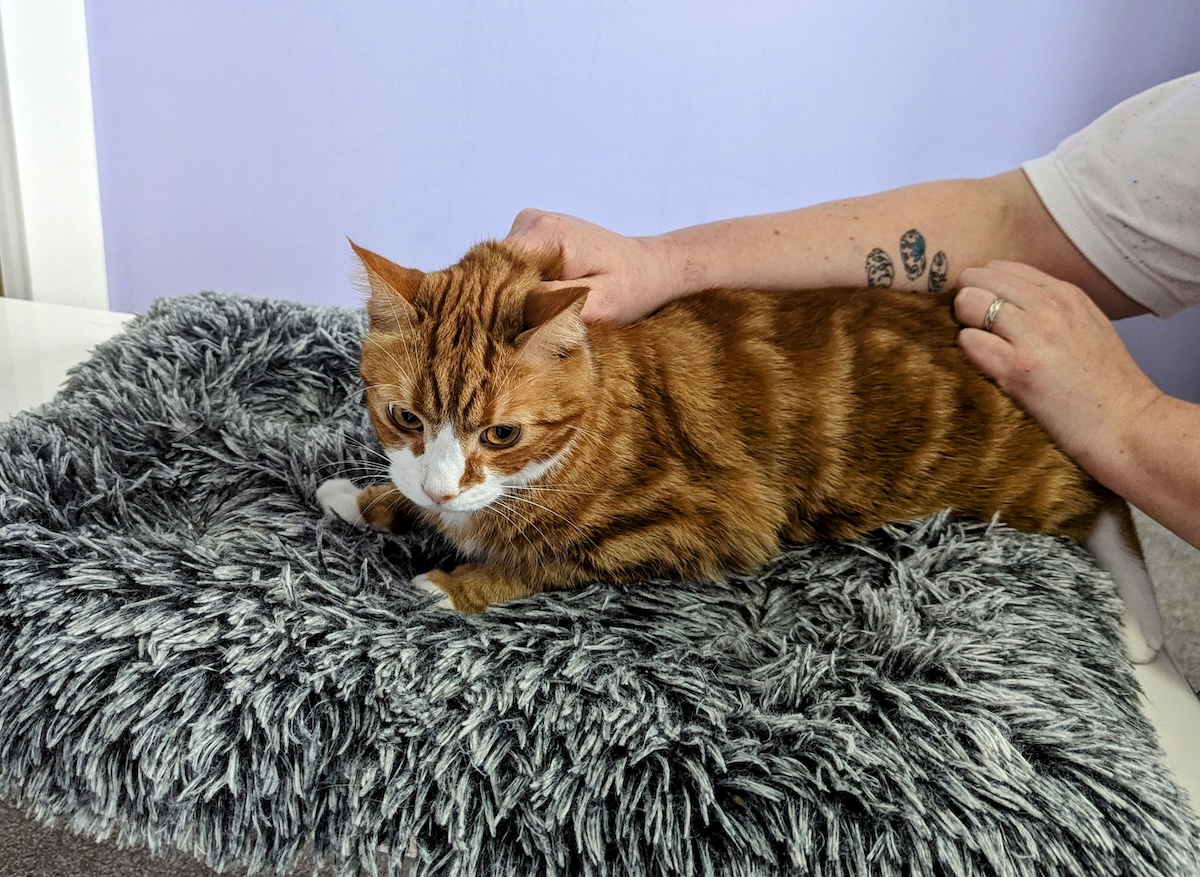Click to Skip Ahead
While popular in traditional and alternative medicine, there is little research or scientific evidence about the catnip plant’s (Nepeta cataria) benefits for nausea in people, let alone cats. This makes it hard to say whether catnip could help a cat with nausea, but anecdotally, some people say it works for them.
Since too much catnip can cause signs like vomiting and diarrhea in cats, we recommend keeping this herb away from your nauseous kitty.

Benefits of Catnip
For cats, the main benefit of catnip is behavioral since about 60% of cats just seem to love it! For sensitive cats, smelling catnips provides a high for 10–30 minutes, with cats showing signs like relaxation, rolling, rubbing, and purring. Many cats don’t react to catnip until they are over 6 months to a year old.
The herb contains nepetalactones, the main compounds in the essential oils from catnip, which are thought to be responsible for the behavioral effects on cats. These nepetalactones may have other effects like repelling and killing insects.
Other plant compounds like flavonoids, polyphenols, and steroids may provide anti-inflammatory, antioxidant, and antimicrobial benefits. Catnip is thought to have an antispasmodic (relaxant) action on smooth muscles in the body.
Smooth muscle is in the airways, gastrointestinal tract, and uterus of people and cats, which could explain the use of catnip for menstrual cramps and indigestion in people. However, this effect is only apparent when used as an essential oil and tested on guinea pig tissue.
Since essential oils are not recommended for cats, and evidence is lacking in this area, we can’t say that catnip will work on your cat’s gastrointestinal system.
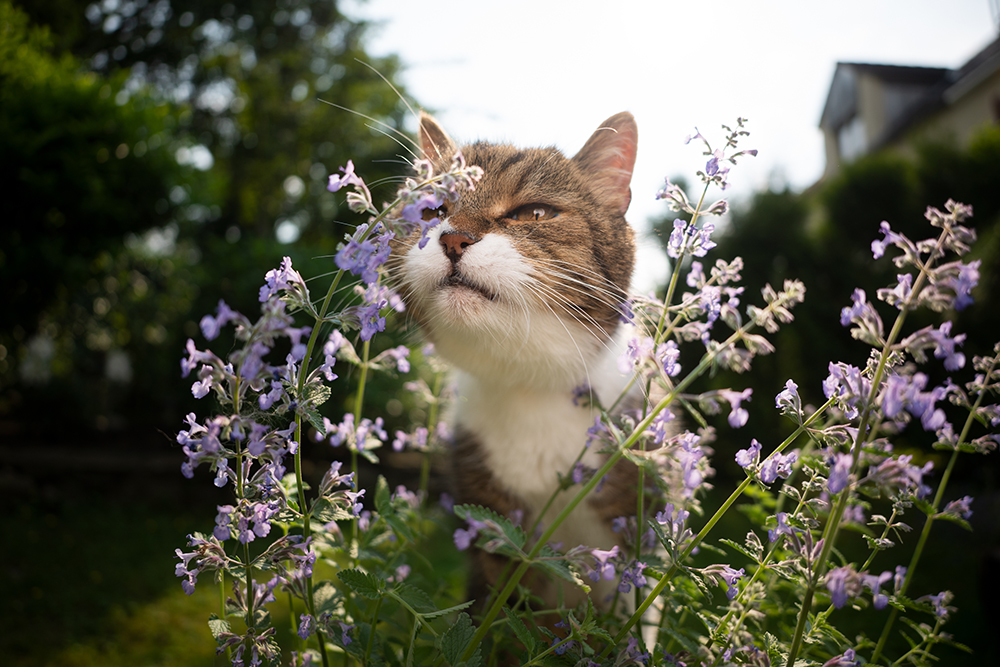
Risks of Catnip
Fresh or dried catnip plants or catnip-based products designed for cats are very safe to use in moderation. Too much catnip can cause vomiting, diarrhea, trouble walking, and disorientation.
We recommend starting with a tiny amount when introducing your cat to catnip, and if your cat is showing any signs of illness, it may be wise to forgo the catnip lest you make things worse. As mentioned earlier, catnip essential oils are not recommended for cats.
Lots of cats go bananas for catnip. If your cat is one of them, we recommend Hepper's durable, engaging Catnip Stick Toy! These sturdy toys come in several fun colors and feature bite-proof double bagging and 100% organic catnip fill. They're also handmade in the USA and designed to look like your cat's natural prey.
At Catster, we’ve admired Hepper for many years and decided to take a controlling ownership interest so that we could benefit from the outstanding designs of this cool cat company!
How Can I Help My Nauseous Cat?
If your kitty is not eating, drooling, or vomiting, you have probably concluded that they are nauseous, and you’re probably right! Cats can be nauseous for a variety of reasons, from minor cases of upset stomachs to life-threatening conditions like a gastrointestinal foreign body, kidney failure, and toxin ingestion.
If your cat appears nauseous, the first thing you should do is check the environment for access to anything that could be harmful to them if eaten. Household toxic plants are a good place to start if your cat is a plant muncher!
You should check if your cat is eating, drinking, urinating, and defecating normally and monitor them for additional signs of illness such as lethargy, wobbly gait, vomiting, pain, and tremors. Please note that drinking and urinating more than usual is a common sign of illness in cats.
Once you have assessed the situation, you should call your veterinarian. Depending on the urgency of your situation, they may recommend that your cat be seen immediately, within the next day or so, or recommend home remedies like a bland diet. If you take your cat to the vet, they can provide anti-nausea medication and perform further testing or treatment as necessary.
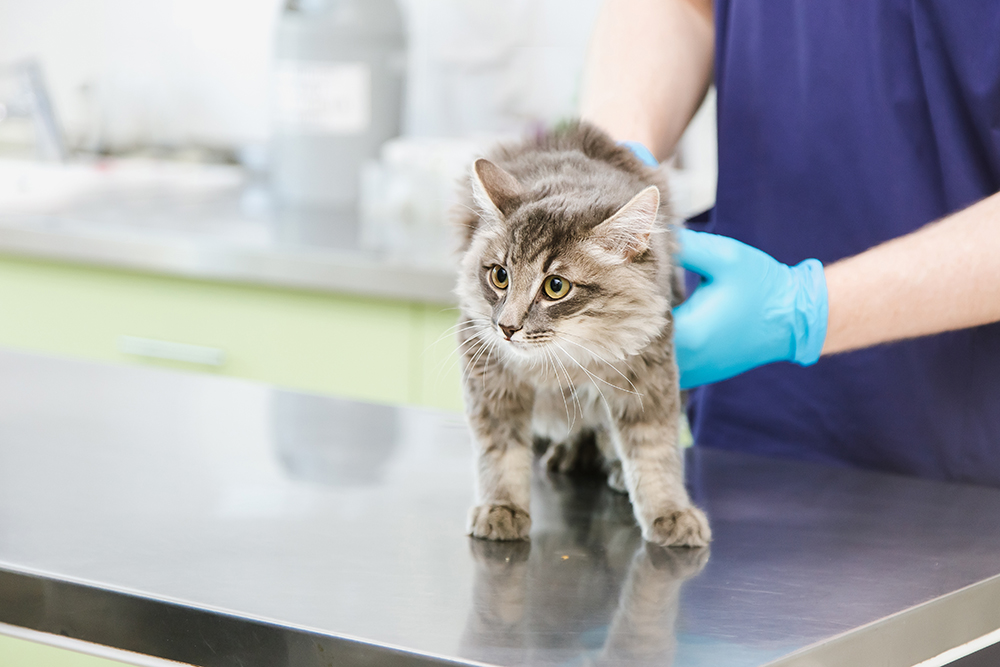
 Final Thoughts
Final Thoughts
If you have an upset stomach, you may have taken catnip tea and felt better. However, cats often mask their signs of illness and can’t tell you how they feel. Although their nausea could be a sign of a mild problem, it could also be related to a more severe condition. In any case, you should assess the situation and get professional advice. If you want to try catnip for their nausea, despite the lack of evidence, you should ask your vet first.
Also see:
Featured Image Credit: Doug McLean, Shutterstock

